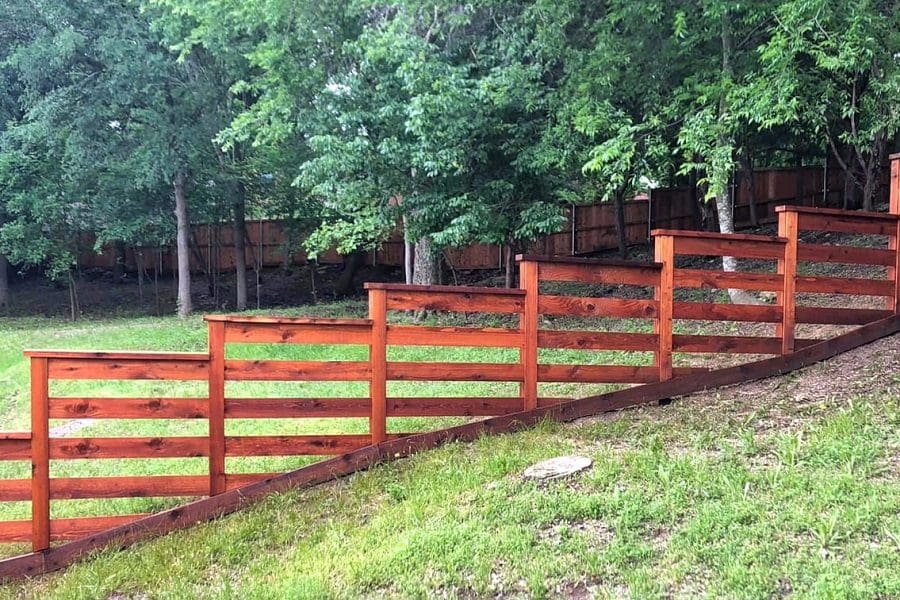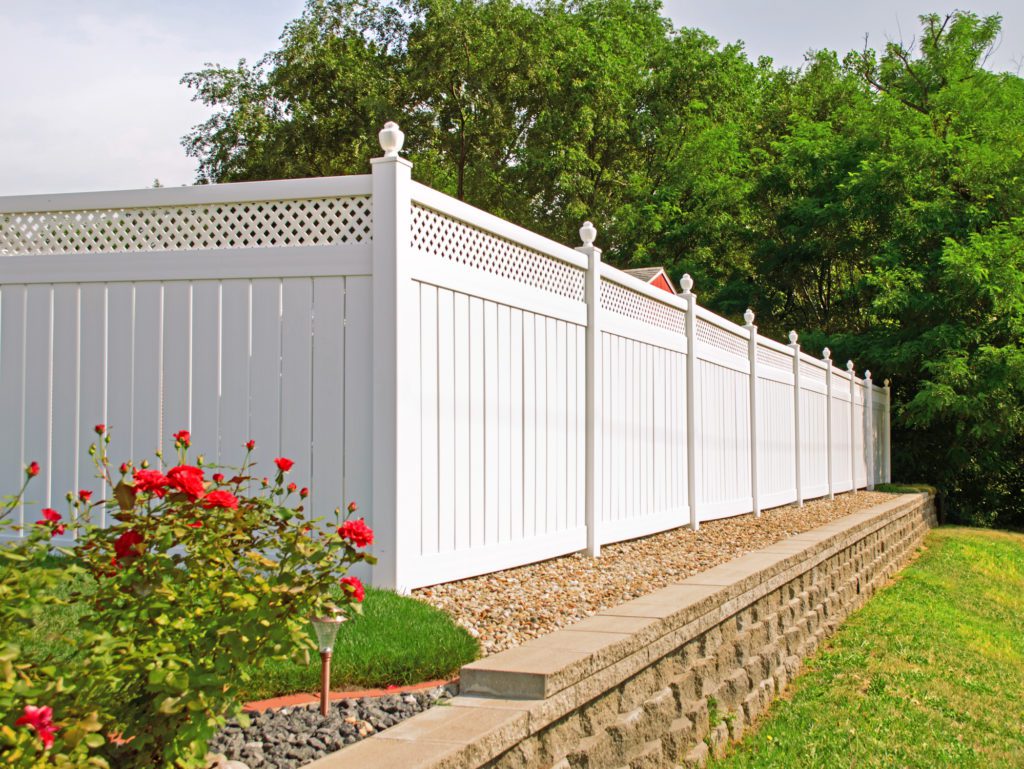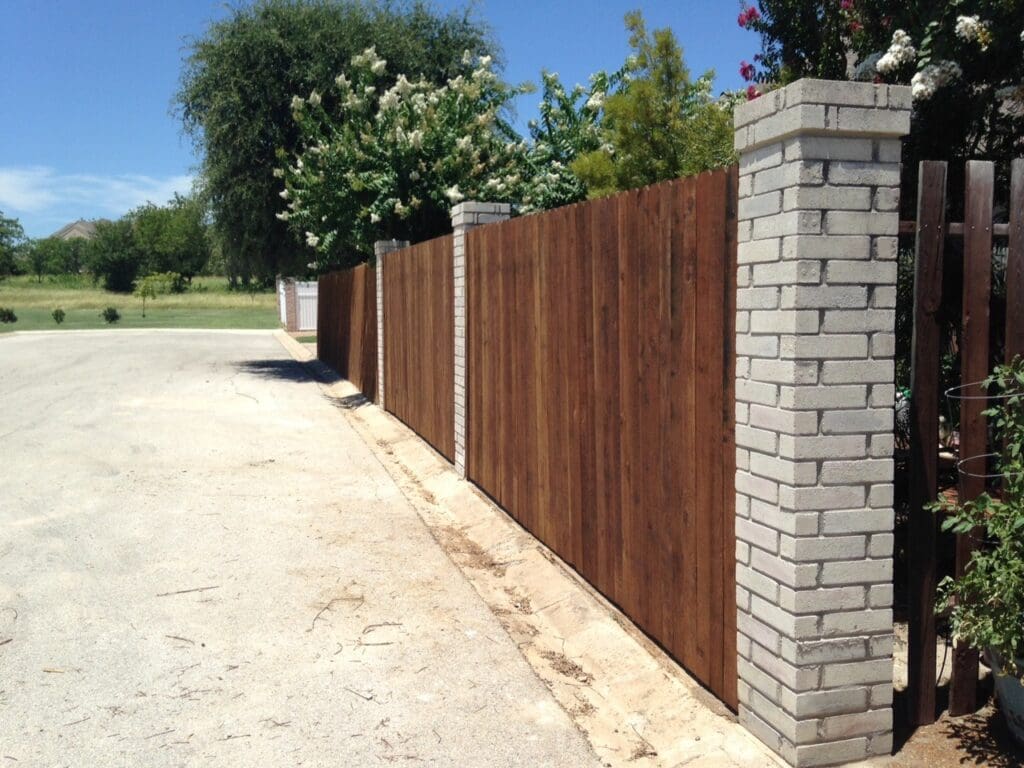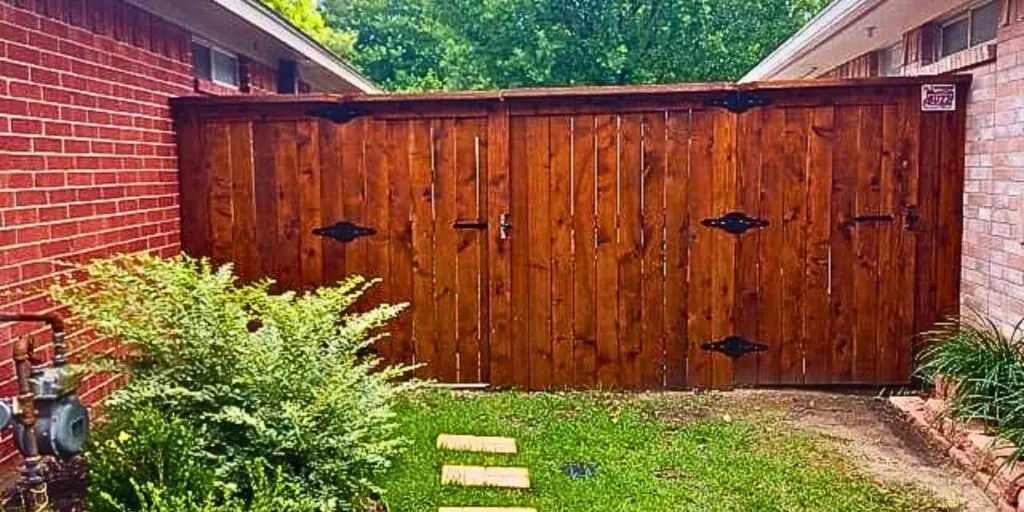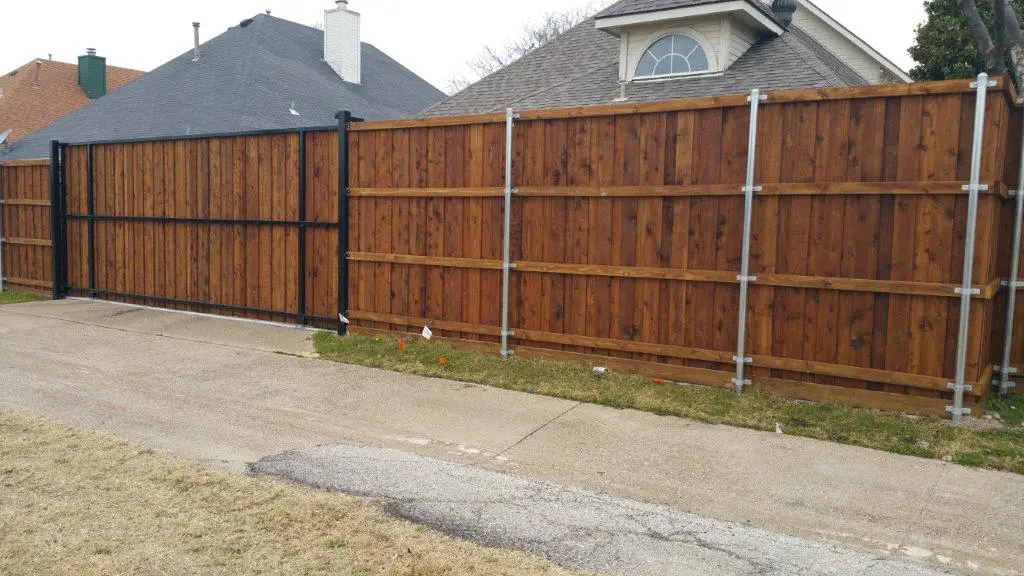When you invest in a fence in Fort Worth, you expect it to protect your home, give you privacy, and boost curb appeal for years. But no fence lasts forever. Texas heat, seasonal storms, and everyday wear all take a toll.
Here’s the real question. How do you know when your fence has reached the end of its life? And when is it smarter to repair rather than replace?
In this guide, we will look at the average lifespan of wood, chain link, vinyl, and wrought iron fences. You will see the warning signs that a fence might be beyond repair. We will also cover how Fort Worth’s climate with high UV exposure, humidity, and shifting clay soil affects different materials. You will get practical tips to extend your fence’s life. And you will see why quality installation makes all the difference in long-term durability.
Why Fence Lifespan Matters for Fort Worth Homeowners
A fence is more than just a boundary. It is part of your home’s protection, privacy, and style. In Fort Worth, it serves three main purposes.
Security: Keeps unwanted visitors out while keeping pets and kids safe.
Curb appeal: Creates a welcoming first impression.
Property value: A well-maintained fence can add to your resale value.
Did you know that fence lifespan in Texas can vary widely? The material, installation quality, and your maintenance habits all matter. Knowing when repairs are worth it and when replacement makes more sense helps you protect your investment.
How Long Does Each Fence Material Last?
Wood (Cedar or Pine): Cedar lasts 15 to 25 years. Pine lasts 10 to 15 years. Seal every two to three years to prevent rot.
Chain Link (Galvanized or Vinyl Coated): 20 to 50 years. Vinyl coating helps prevent rust.
Vinyl: 20 to 40 years. UV protection is a must in Fort Worth’s sun.
Wrought Iron: 30 to 50 or more years. Needs rust prevention and repainting.
Composite or Aluminum: 25 to 40 years. Low maintenance but less common locally.
Here’s the thing. A well-installed cedar fence with regular upkeep can last five to ten years longer than untreated pine.
How Do You Know Your Fence Is Beyond Repair?
Wood Fences:
-Rot or decay at the bottom of boards or posts
-Warping, splintering, or missing boards
-Leaning sections
Chain Link Fences:
-Sagging mesh or broken tension wires
-Rust at joints and post bases
-Bent posts
Vinyl Fences:
-Cracks or breaks after impact
-Severe fading or brittleness from UV damage
Wrought Iron Fences:
-Deep rust or pitting
-Broken welds or loose panels
Rule of thumb: If repairs cost more than half the price of a new fence, replacement is usually the better choice.
Unique tip. Fort Worth’s clay soil expands and contracts with the seasons. This can push posts out of alignment faster than in other regions.
How Texas Weather Affects Fence Longevity
Heat and UV Rays: Fade wood stains, make vinyl brittle, and wear down coatings.
Rain and Humidity: Speed up wood rot and rust in metals.
High Winds and Storms: Can topple poorly anchored posts.
Clay Soil Movement: Causes leaning or gaps at the base.
Did you know that upgrading to galvanized steel posts for wood fences or using UV-stabilized vinyl can add years to your fence’s life?
Tips to Make Your Fence Last Longer
- Stick to a maintenance schedule. Seal or stain wood every two to three years. Wash vinyl yearly. Treat metal for rust.
- Keep plants and soil away from the base to prevent rot.
- Inspect your fence seasonally. Fix small problems before they get big.
- Use quality hardware like stainless steel or coated fasteners.
Here’s a smart trick. Adding a top cap to a wood fence protects the boards from rain and sun, and it is much easier to replace than the whole fence.
Why Quality Installation Matters Most
Even the best material will fail early if installed incorrectly. At Buzz Fence, we make sure your fence is built to handle Fort Worth’s challenges. That means:
Proper post depth for clay soil stability
Materials matched to your property’s needs
Attention to details such as clean cuts, strong fastenings, and perfect alignment
A fence you can rely on starts with experienced installers who know the local conditions.
Quick Takeaways
-The material you choose sets the baseline lifespan
-Texas weather means you need climate-appropriate materials
-Good maintenance can add five to ten years of service
-If repairs cost more than half of replacement, go with replacement
-Expert installation ensures your fence stands strong for years
Making the Smart Choice
A fence is part of your home’s security, privacy, and curb appeal. In Fort Worth, the climate makes smart material choices and maintenance essential.
Wood offers natural beauty but needs care. Chain link and vinyl give you longevity. Wrought iron delivers timeless durability with some upkeep. And if repair costs reach that 50 percent mark, it is usually time for a new one.
Buzz Fence builds fences that handle Fort Worth’s heat, storms, and soil with quality materials and proven craftsmanship.
Ready to find out if your fence should be repaired or replaced? Schedule your free estimate today.
FAQs About Fence Lifespan in Fort Worth
Q: How long does a wood fence last in Fort Worth?
A: A cedar fence can last 15–25 years with consistent sealing, while pine averages 10–15 years.
Q: What are the signs my fence needs replacing?
A: Rot, leaning, large cracks, rust, or widespread sagging are key indicators.
Q: Does Texas weather shorten fence lifespan?
A: Yes, UV, humidity, and clay soil movement all impact durability.
Q: How can I extend my fence’s life?
A: Follow a maintenance schedule, use quality hardware, and address repairs early.
Q: Is repair or replacement better?
A: If repair costs exceed 50% of replacement, replacement is usually best.
References
https://www.riograndefence.com/blog/understanding-the-lifespan-of-different-fencing-materials
https://upgradedhome.com/how-long-do-fences-last
https://www.beitzellfence.com/which-fence-materials-last-the-longest

